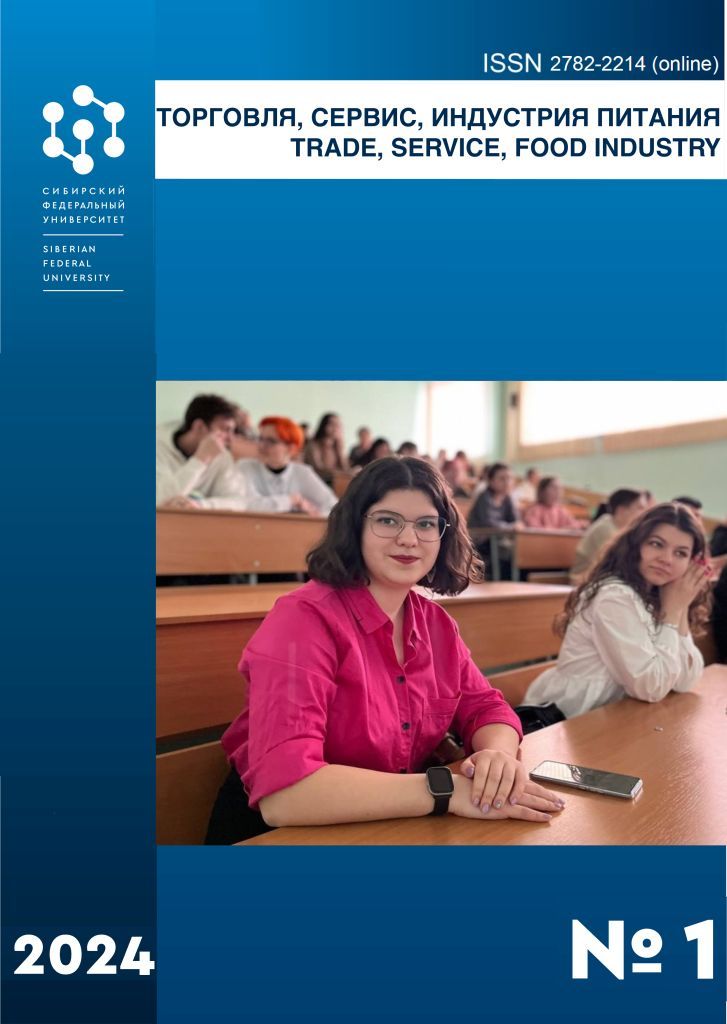Pskov branch of the University of the Federal Penal Correction Service of Russia
Pskov, Russian Federation
The focus of the research is the platform employment of young people in achieving social effect in compliance with the procedure for ensuring labor rights related to employment at the conclusion of the labor contract, receiving wages and social guarantees. The social effect is associated with legal culture and legal consciousness, harmonization of labor law norms of legal systems by virtue of access to external labor markets and increased labor mobility in interactive form - caused by the attempt to institutionalize the phenomenon of "digitalization", establishing its continuity in relation to the institutions of law. The purpose of the research is the order of remote labor quotas, the observance of labor rights of young workers of platform employment. The research applies scientific-methodological, theoretical-legal, retrospective, dialectical approach where etymological, formal-logical and formal-legal methods, method of interpretation of definitions and interpretation of properties of phenomena, method of legal review and legal analysis of norms, problematics, analysis of authors' positions and generalisation of scientific-theoretical results were used. In the course of scientific-theoretical research the elements of goal-setting are established and disclosed, the conceptual apparatus is detailed, the scientific development of the topic is revealed, the scientific-methodological and dialectical approach is applied in revealing the relevance, problems, author's views of legal understanding of definitions and phenomena, analysis of law enforcement of the order of respecting the labor rights of youth in employment, including at the regional level. Proposals are given to remove social tension on the young people labour market on the example of the Pskov region, which could be of practical and law-enforcement importance in conditions of the autonomy of the subject of the Russian Federation to establish the labour law with regard to the socio-economic specialization in achieving the social impact at the regional level.
remote labor quota, social impact, digitalization, labour rights, young worker, employment
1. Sukhova, N., Babikova, I. (2020). Challenges of and Responses to Various Legal Mechanisms for the Harmonization of Civil Procedure in Eurasia. Russian Law Journal, VIII(3), 141–161. DOI:https://doi.org/10.17589/2309-8678-2020-8-3-141-161.
2. Rouvinsky, R. (2021). Law in the Age of the 4th Industrial Revolution: Between the Impersonal Technology and Shadow Orders. Russian Law Journal, IX(1), 4–33. DOI:https://doi.org/10.17589/2309-8678-2021-9-1-4-33.
3. Tolstykh, V. (2020). Cultural Foundations and Mythological Nature of Human Rights. Russian Law Journal, VIII(2), 104–119. DOI:https://doi.org/10.17589/2309-8678-2020-8-2-104-119.
4. Laptev, V., Fedin, V. (2020). Legal Awa Reness in a Digital Society. Russian Law Journal, VIII(1), 138–157. DOI:https://doi.org/10.17589/2309-8678-2020-8-1-138-157.
5. Stepanov, O., Pechegin, D. (2018). Legal View on the Introduction of New Technologies. Russian Law Journal, VI(3), 149–171. DOI:https://doi.org/10.17589/2309-8678-2018-6-3-149-171.
6. Lyutov, N., Golovina, S. (2018). Development of Labor Law in the Eu and Eaeu: How Comparable? Russian Law Journal, VI(2), 93–117. DOI:https://doi.org/10.17589/2309-8678-2018-6-2-93-117.
7. Polyushkevich, O. A., Zhuravleva, I. A., Druzhinin, G. V., Moskvitina, N. V. (2020). Fundamentals of digitalization of state and municipal governance. Irkutsk : Publishing House of Irkutsk State University, 163.
8. Nath, V., Lockwood, G. Implications of the UK Equality Law for tele-homeworking: COVID-19 and beyond. International Journal of Law and Management. [Electronic source] URL: https://www.emerald.com/insight/content/doi/10.1108/IJLMA-07-2021-0183/full/html (Date of access: 19.03.2023).
9. Lyutov, N., Voitkovska, I. (2021). Remote WoRk and Platform WoRk: The Prospects for Legal Regulation in Russia. Russian Law Journal, IX(1), 81–113. DOI:https://doi.org/10.17589/2309-8678-2021-9-1-81-113.
10. Candidate, J. D. (2022). All Work and no Play Can Make a Kid a Millionaire: Child Labor Laws and the Role of the Dol to Protect Minors in the Growing Industry of Social Media Employment. Administrative Law Review, 160–182.
11. Nguyen, H.-P., Le, H-N. Determinants of Job-Hopping Behavior: The Case of Information Technology Sector. International Journal of Law and Management. [Electronic source] URL: https://www.emerald.com/insight/content/doi/10.1108/IJLMA-06-2020-0178/full/html (Date of access: 19.03.2023).
12. Pio, R. J. The Mediation Effect of Quality of Worklife and Job Satisfaction in the Relationship between Spiritual Leadership to Employee Performance. International Journal of Law and Management. [Electronic source] URL: https://www.emerald.com/insight/publication/ issn/1754-243X/vol/64/iss/1 (Date of access: 19.03.2023).
13. Akulshina, A. E., Zhmykhova, A. A., Kukharev, Yu. C. (2022). Distant labor: its legal features and organization of labor remuneration. Labor and Social Relations, 33(6), 152–161. DOI:https://doi.org/10.20410/2073- 7815-2022-33-6-152-161.
14. Lyschuk, E. N., Kapeliuk, S. D. (2019). Employment of young specialists in the Russian labor market: key trends. Russian Journal of Labor Economics, 3, 1079–1092.
15. Middlemiss, S. The Legal Rights of Workers and Volunteers at the Edinburgh Festival Fringe. // International Journal of Law and Management. [Electronic source] URL: https://www.emerald.com/insight/content/doi/10.1108/IJLMA-03-2020-0082/full/html (Date of access: 19.03.2023).
16. Lewis, D. Retaliation for Whistleblowing: Some Case Studies on the Experience of Re-Employment/Redeployment. International Journal of Law and Management. [Electronic source] URL: https://www.emerald.com/insight/content/doi/10.1108/IJLMA-10-2021-0244/full/html (Date of access: 19.03.2023).
17. Maltsev, V. A. (2021). Precedent decisions of the European Court of Human Rights on the protection of the right to fair wages. Labor and social relations, 32(1), 146–159. DOI:https://doi.org/10.20410/2073-7815-2021-32-1-146-159.
18. Al-Tawil, T. N., Gantasala, V. Pr., Younies, H. Labour-friendly Practices and Value Maximization: a SEM approach. International Journal of Law and Management. [Electronic source] URL: https://www.emerald.com/insight/content/doi/10.1108/IJLMA-12-2020-0320/full/html (Date of access: 19.03.2023).
19. Hafiz, H. (2021). Interagency Coordination on Labor Regulation. Administrative Law Review, 199–258.
20. Hall, A. (2022). Worker Representation in the Regulation of Occupational Health: Explaining the Shift to Knowledge Activism. Social & Legal Studies, 32(2), 273–293. DOI:https://doi.org/10.1177/09646639221099361.
21. Tan, C. (2021). Audit as Accountability: Technical Authority and Expertise in the Governance of Private Financing for Development, 31(1), 3–26. DOI:https://doi.org/10.1177/0964663921992100.
22. Ordina, O. N. (2020). Public service of Russia as a social institute of public-law regulation. Labor and Social Relations, 1, 171–178.
23. Lyulyukin, V. V. (2020). Approaches to understanding the social effect of legal institutions. Actual problems of Russian law, 15(11), 140–152. DOI:https://doi.org/10.17803/1994-1471.2020.120.11.140-152.
24. Rozhkova, A. Yu. (2022). Network and platform labor employment: workers' rights. Bulletin of N. I. Lobachevsky Nizhny Novgorod University, 6, 138–146. DOI:https://doi.org/10.52452/19931778_2022_6_138.
25. Rozhkova, A. Yu. (2022). Features of remote labor: network and platform employment. Legal Bulletin of Dagestan State University, 42(2), 112–120.







